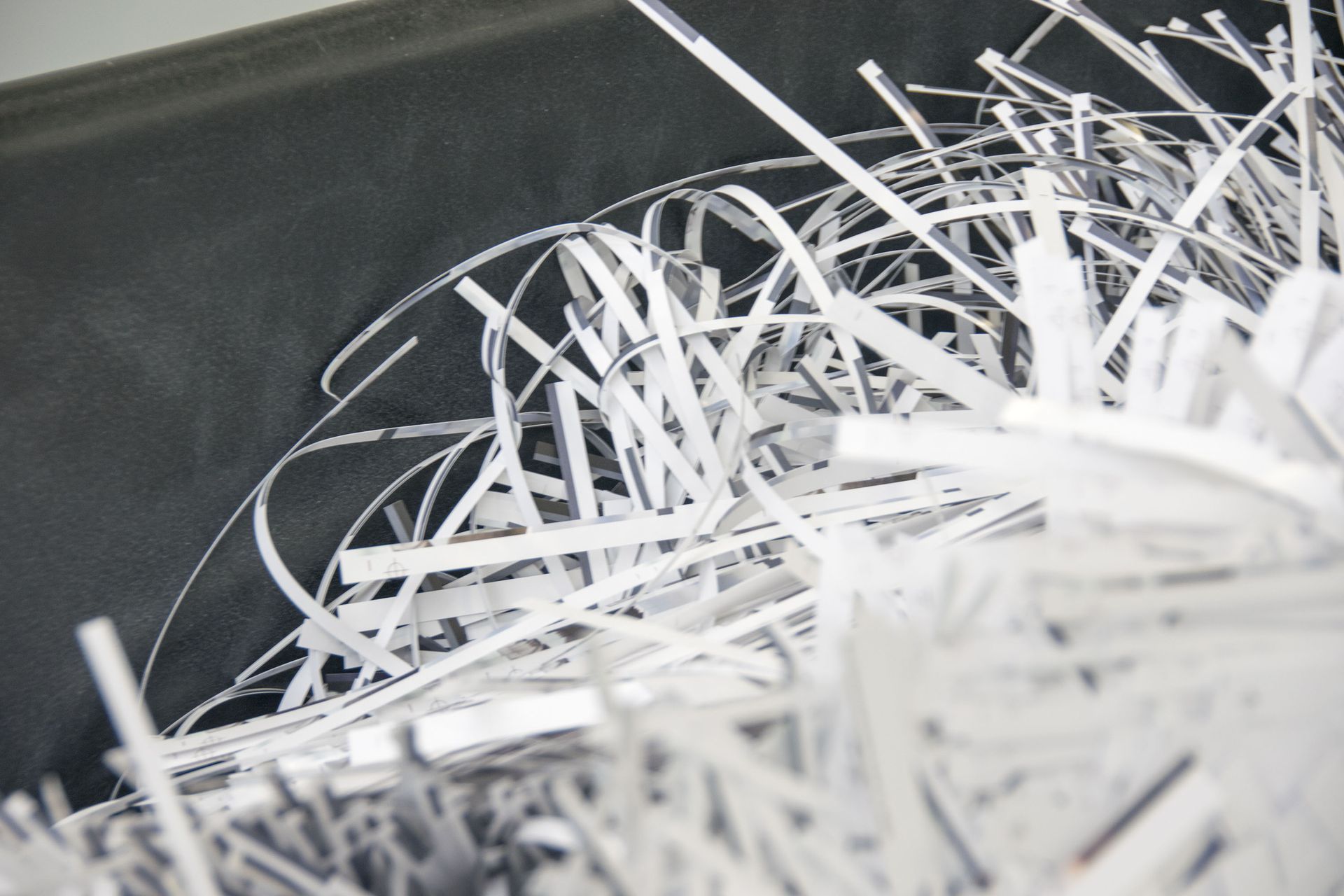October 22, 2025
As data breaches and privacy concerns rise, document shredding services have become essential for businesses to comply with privacy laws. This article explores how shredding supports compliance and offers a secure framework for protecting sensitive information. With privacy laws becoming stricter, businesses must prioritize their responsibility to safeguard client and employee data. Document shredding services are not just about meeting legal requirements; they’re about maintaining the trust of customers and clients.
Understanding Privacy Laws and Their Requirements
The Evolution of Privacy Laws
Privacy laws have evolved alongside technology, addressing concerns over personal data protection. Initially focused on preventing misuse, these laws have expanded to ensure individuals have control over their personal data. As digital technology advanced, privacy laws adapted to better protect consumer rights, creating a complex framework that businesses must navigate. Document shredding services play a vital role in ensuring compliance with these ever-evolving privacy laws.
The Role of Data Protection and Security
Data protection is essential for compliance and consumer trust. Document shredding services play a critical role in data security, addressing the disposal phase of the data lifecycle. Proper shredding practices help prevent data leaks and unauthorized access, ensuring compliance and safeguarding both company and customer data. By relying on professional document shredding services, businesses can ensure that confidential information is securely disposed of, mitigating the risk of data breaches.
Mandatory Compliance for Businesses
Compliance with privacy laws is mandatory for businesses, regardless of size or industry. Companies must prove their adherence to data protection standards to avoid penalties. Document shredding services provide businesses with a reliable method to meet these standards, ensuring sensitive information is securely disposed of and reducing the risk of non-compliance.
Penalties for Non-Compliance
Failure to comply with privacy laws can result in severe penalties, including fines, legal action, and reputational damage. The GDPR, for example, imposes fines of up to €20 million or 4% of global revenue. Document shredding services help businesses avoid such penalties by securely disposing of sensitive information, preventing data breaches and minimizing legal risks. When businesses implement secure shredding services, they reduce the chance of facing hefty fines for data mismanagement.
The Importance of Document Shredding
What Is Document Shredding?
Document shredding is the process of cutting paper documents into tiny pieces to prevent reconstruction. This method is vital for securely disposing of documents containing confidential information. Shredding ensures that sensitive data does not fall into the wrong hands, supporting both legal compliance and data protection. According to Business Research Insights, in 2023, North America accounted for about 40% of the document shredding services market. Many businesses rely on document shredding services to ensure that their discarded documents are securely destroyed.
Types of Documents That Require Shredding
Documents such as financial records, personnel files, medical records, and legal documents require shredding to protect personal information and prevent identity theft or corporate espionage. Businesses create retention policies to determine when documents should be destroyed securely, ensuring sensitive data is not kept longer than necessary. Document shredding services help in this process by offering secure disposal methods for these important documents.
Overview of Shredding Techniques
Document shredding can be performed using various techniques. Strip-cut shredding, while common, offers basic security. Cross-cut shredding provides better security by cutting paper into smaller pieces, while micro-cut shredding offers the highest level of security by reducing documents to tiny particles. The method chosen depends on the sensitivity of the information being shredded. Document shredding services typically provide different options depending on the level of security required.
Document Shredding and Risk Management
Identifying Risks in Document Handling
Risks in document handling arise at various stages, including creation, storage, and disposal. Shredding significantly reduces risks during the disposal phase, eliminating vulnerabilities that could lead to unauthorized access or accidental loss of sensitive data. Document shredding services help businesses mitigate these risks by ensuring that documents are securely destroyed when no longer needed.
Minimizing Exposure to Data Breaches
Shredding is a key measure in reducing exposure to data breaches. A robust shredding policy minimizes the risk of information being accessed by unauthorized individuals. Document shredding services offer businesses the confidence that their sensitive documents are disposed of securely, significantly reducing the risk of data exposure.
Protecting Your Company's Reputation
A company’s reputation can be severely impacted by data breaches. Secure document shredding services help protect organizational integrity by ensuring sensitive data is disposed of properly, fostering trust with clients and customers and safeguarding the company’s public image.
Financial Implications of Non-Compliance
Non-compliance can result in costly fines, legal fees, and reputational damage. Beyond these direct costs, businesses may suffer long-term financial losses due to customer attrition. Investing in document shredding services helps prevent these financial consequences by ensuring sensitive data is securely disposed of and reducing the risk of data breaches.
Implementing a Risk Management Strategy
A solid risk management strategy includes secure data disposal practices like shredding. By incorporating shredding into broader data protection measures, businesses can mitigate risks and ensure compliance with privacy regulations. This integrated approach strengthens the overall security posture and helps prevent costly data breaches. Document shredding services play a vital role in this risk management strategy.
Implementing a Document Shredding Policy
Components of an Effective Shredding Policy
An effective shredding policy outlines procedures for securely disposing of documents, including retention schedules, document sensitivity levels, and appropriate shredding methods. Regular employee training and audits are also essential to ensure ongoing compliance and improve data security practices. Document shredding services help businesses maintain consistency and accountability in executing these policies.
Leveraging Technology in Shredding
Technological advancements have improved shredding operations by offering more efficient and secure shredders. Automated shredders with higher capacities and digital tools for data management enhance the effectiveness of shredding practices, allowing businesses to meet compliance requirements more easily.
Scaling Shredding Programs for Different Business Sizes
Shredding programs should be tailored to a business's size and document disposal needs. Smaller businesses may handle shredding in-house, while larger companies may need commercial shredding services for high-volume or sensitive materials. Scalable shredding solutions ensure that businesses of all sizes can maintain data security and comply with privacy laws.
The Role of Shredding Services Providers
Benefits of Outsourcing Shredding Services
Outsourcing shredding services offers benefits such as access to advanced shredding technologies and greater security. Professional providers also reduce the internal burden of managing shredding operations, allowing businesses to focus on their core activities while maintaining compliance and protecting sensitive data. Document shredding services are designed to handle large volumes efficiently and securely.
Choosing an Accredited Shredding Provider
When outsourcing shredding, businesses should select accredited providers that comply with industry standards. Accreditation ensures that shredding practices meet high security and compliance requirements, providing peace of mind and safeguarding sensitive information. Document shredding services offered by accredited providers meet these stringent standards.
Assessing the Security Features of Shredding Companies
Choosing a shredding provider involves assessing their security measures, including transport protocols, on-site shredding, and secure data destruction reporting. Businesses should evaluate these features to ensure their chosen provider meets the necessary security and compliance standards.
Document shredding services play a pivotal role in ensuring compliance with privacy laws, safeguarding businesses against reputational, financial, and legal risks. As the regulatory landscape continues to evolve, embracing both effective policies and technological innovations in document shredding will be essential for maintaining compliance and protecting sensitive information.
By incorporating shredding into an integrated data protection strategy, organizations demonstrate their commitment to securing the trust of clients and stakeholders. With an eye on future trends, businesses can adapt to changing demands effectively, positioning themselves as leaders in data protection and compliance. Ultimately, document shredding services remain an indispensable tool in the ongoing effort to safeguard privacy and integrity in the digital age. Contact Hill's Shred Express today to learn more.





